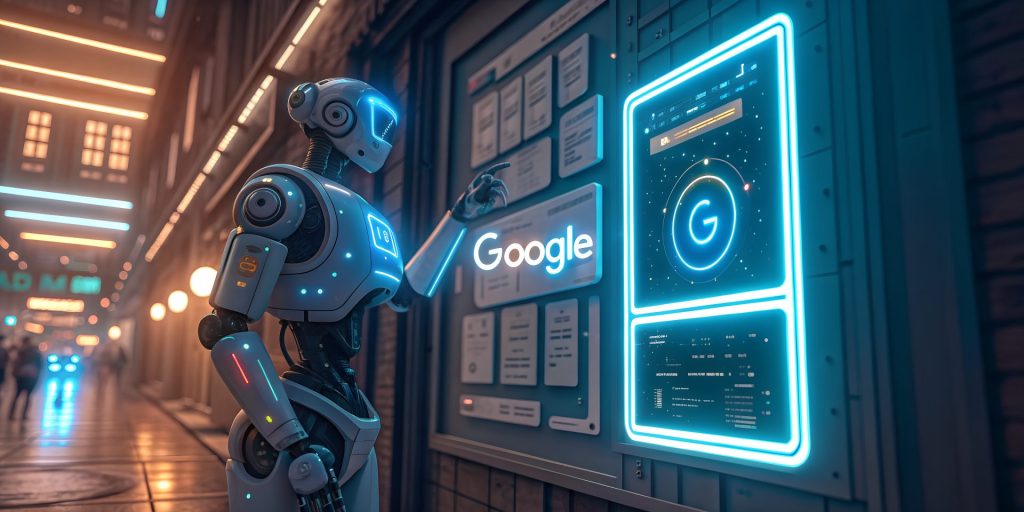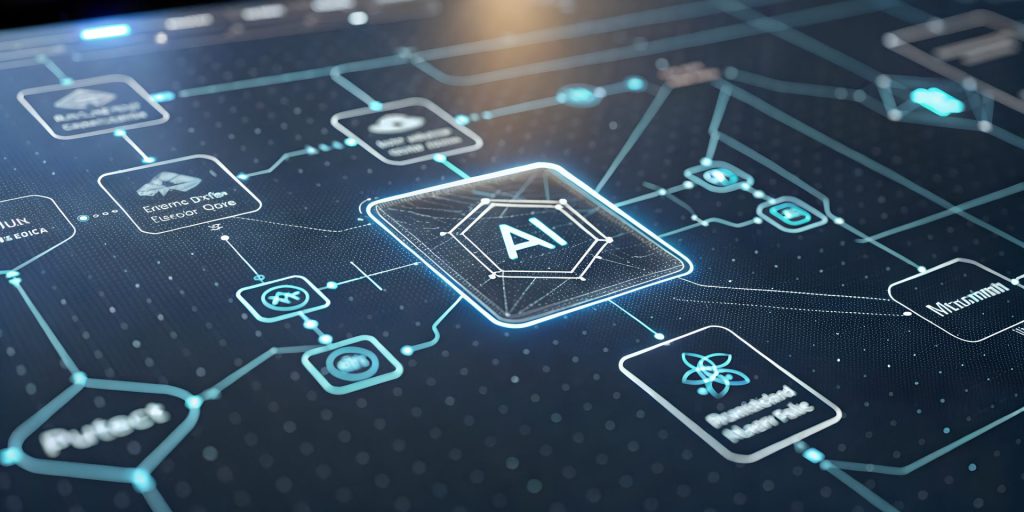Artificial Intelligence (AI) is no longer a distant dream. It’s a fast-changing industry and is redefining the way businesses function. One of the biggest technological advances in AI is the growth of AI agents, also called autonomous AI systems.
Virtual assistants are handling around 200 billion annual requests and allowing users to save countless hours performing everyday tasks, such as setting alarms and directing smart home devices.
Intelligent machines can complete jobs, make choices, and gain knowledge from experience that is not dependent on human input. From chatbots for customer service to robotic research assistants, AI agents are transforming our work.
What Is Agentic AI?
In essence, Agentic AI refers to intelligent AI software agents able to act independently to accomplish specific goals. Contrary to conventional AI models that rely on specific inputs and outputs that are pre-defined, they operate autonomously. Similar to human employees, they can see their surroundings and make choices that affect their actions in order to achieve their goals.
AI agents can perform a variety of tasks, including reasoning, memory, planning and natural language processing. This makes them ideal for tasks requiring adaptability, context awareness and multiple-step execution.
The IEEE Computer Society noted this automated, intelligent system is the primary driver of the digital revolution in contemporary enterprises.
From Assistants to Agents: A Shift in Intelligence
The world has moved on from chatbots based on rules and robot automated processes (RPA). Agentic AI signifies a shift from reactive support to more proactive agents. Conventional AI instruments respond to commands, but agentic AI can plan and execute actions using foresight.
Imagine the supply chain management agent that doesn’t just spot an inventory shortage; it also predicts demand, determines the most effective vendors, negotiates pricing and initiates the reordering process all on its own. It’s not only automation. That’s an intelligent delegation.
According to a Gartner report, by 2026, nearly 70% of businesses will deploy agents-based platforms to manage complicated decision-making workflows.
Real-World Business Applications
1. Intelligent Customer Support
Customer service was among the early adopters of AI; however, Agentic AI introduces a new degree of sophistication. Instead of basing their decisions on automated responses, agents can analyze customers’ histories to interpret tone and respond to customers with customized offers or recommendations.
Businesses like Cohere are developing language agents that can fully understand the context of their work and adjust their actions accordingly, thus reducing the need for humans to intervene.
2. Product Development and Innovation
Agentic AI assists R&D teams by browsing research databases, analyzing market trends, and suggesting innovative product features. It can also conduct experiments, evaluate hypotheses and suggest the next step at a moment’s notice.
Software development is a process in which agent-based tools can autonomously write code, carry out QA tests, and even suggest UI enhancements. Thus, developers can concentrate on architecture and strategy.
3. Sales and Marketing
Artificial Intelligence-powered sales representatives can communicate with leads through different channels, guide them throughout the process, and tailor their communications based on their behavior and preferences. For marketing, they can create content, conduct A/B tests and continually improve marketing campaigns.
The outcome? Faster, smarter and more efficient customer acquisition and retention.
Why Businesses Are Embracing Agentic AI
1. Better Decision-Making
Agentic AI has the ability to synthesize massive databases, find patterns and make informed decisions without fatigue or bias. This improves accuracy and reliability throughout operations.
2. Scalability and Efficiency
AI agents operate 24/7, aren’t dependent on breaks, and can handle thousands of different tasks at once. Thus, businesses can scale their operations without a cost increase.
3. Continuous Learning
In contrast to systems based on rules, Agentic AI can adapt to changing conditions and inputs. The system becomes more intelligent over time, enhancing its efficiency with each iteration.
Challenges and Considerations
Although the advantages appear obvious, there are some significant considerations that businesses should consider when considering adopting Agentic AI.
1. Ethics and Trust
Autonomous decision-making can raise ethical concerns. Businesses must ensure transparency and fairness when AI agents operate.
2. Security Risks
The agents are often in contact with sensitive data and systems. Security and monitoring are vital.
3. Integration Complexity
Implementing AI agents on old systems isn’t easy. Companies may have to upgrade their infrastructure to fully benefit from Agentic AI.
Fortunately, the tech world has begun to address these issues.
The Future of Work: Humans and Agents, Side by Side
Agentic AI doesn’t aim to replace humans; it’s about enhancing their capabilities. These agents can take on repetitive, data-heavy, and decision-intensive tasks, allowing employees to focus on creativity, strategy, and relationship-building.
Most successful businesses will build collaborative networks that let humans and AI agents work together. Consider Agentic AI as your brand new partner: productive, relentless and never stopping ever.
Getting Started: Tips for Business Leaders
If you’re contemplating the introduction of Agentic AI in your business, there are a few actions to take into consideration:
- Determine the use cases in which automated decision-making could bring the highest value, like logistics support, customer service or automation of IT.
- Select the appropriate technology or framework for flexible, secure and responsible Agent development.
- Start with small, then test the program in a controlled setting and modify it based on the findings.
- Your team should be trained to operate efficiently with these systems and build a culture of AI education.
Autonomous AI Agents: The Future of Business Operations
If conversational artificial intelligence can be combined with conventional chatbots, this reduces the need for human beings. When performing everyday tasks or collaborating with humans, these self-contained AI agents can do wonders. They have proven effective in helping companies succeed and are changing how companies operate.
Capabilities:
- Task Management It automatizes jobs, which reduces the need for workers.
- Making a decision: Use evidence to evaluate the latest information and make a phone call.
- Self-Learning: Improve your abilities by using techniques for reinforcement learning.
- Contextual adaptation adapts to changing conditions and comprehends the ever-changing context.
- Collaboration: Connect effortlessly with various AI platforms and humans.
Use Cases:
- Security Against Fraud: The majority of banking institutions use AI agents to identify suspicious behavior and transactions.
- Supply Chain Optimization Artificial intelligence agents improve logistics operations and handle demand and inventory.
- Predictive maintenance When manufacturing, AI agents analyze sensor information to identify equipment malfunctions before their occurrence.
The Impact on Businesses:
- Efficiency Benefits: Tasks that took too long are finished in a quickness of a glance.
- Cost Reduction: Businesses could avoid hiring employees. Additionally, they could prevent any issues.
- Improved Accuracy: Decisions based on data eliminate errors and ensure consistency.
Conclusion
AI agents are here and will remain, changing industries through increasing efficiency, automating processes, and providing smart insights. Organizations that use automated processes based on AI will be ahead of their competitors, as professionals are required to adjust to AI by advancing their skills in related fields.





